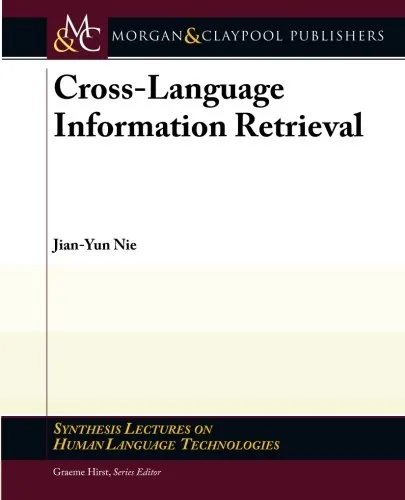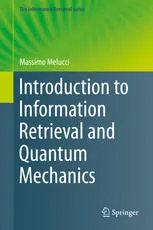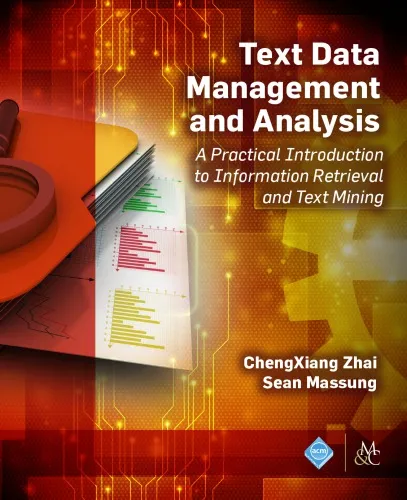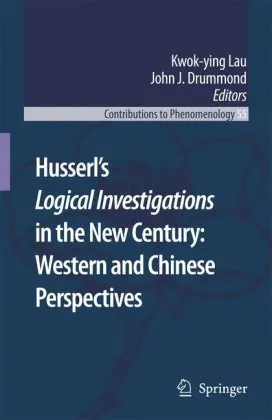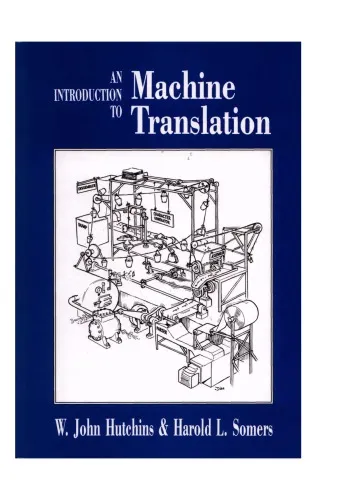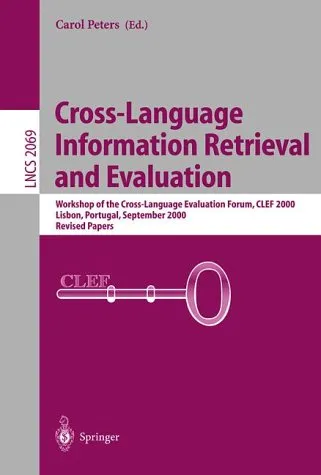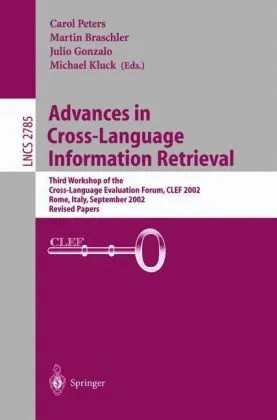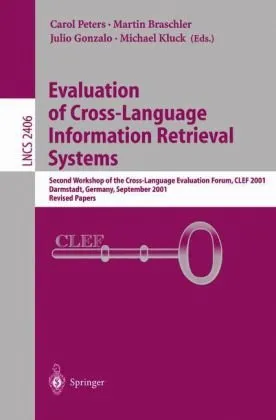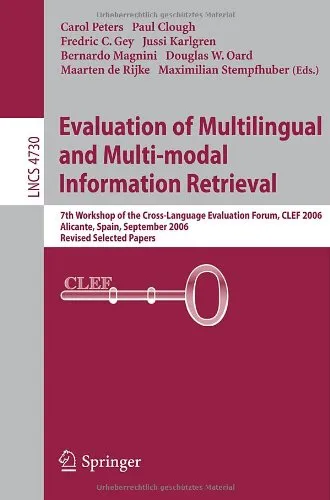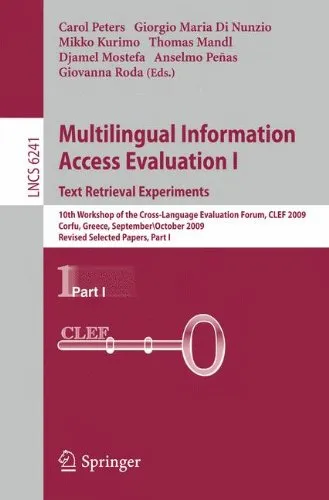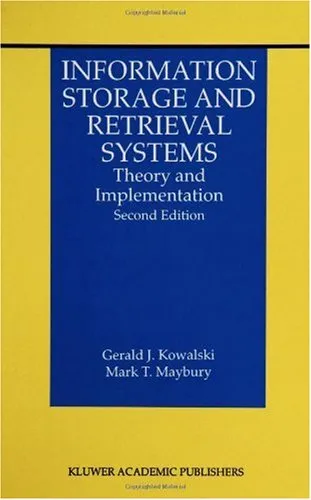Cross-language Information Retrieval (Synthesis Lectures on Human Language Technologies)
4.0
Reviews from our users

You Can Ask your questions from this book's AI after Login
Each download or ask from book AI costs 2 points. To earn more free points, please visit the Points Guide Page and complete some valuable actions.Related Refrences:
Introduction to "Cross-language Information Retrieval"
The book "Cross-language Information Retrieval (Synthesis Lectures on Human Language Technologies)" serves as a comprehensive guide to understanding the principles, methodologies, and challenges involved in cross-language information retrieval (CLIR). Authored by Jian-yun Nie, this text offers an in-depth exploration of how information retrieval systems work across diverse languages, enabling users to access information regardless of linguistic barriers.
Detailed Summary of the Book
The book provides a thorough introduction to the field of cross-language information retrieval and its significance in today’s globalized world. At its core, CLIR addresses the critical issue of enabling users to search for and retrieve information in a language they do not speak. From its historical development to current advancements, the book outlines key techniques and frameworks that make bilingual and multilingual information retrieval possible.
Readers are guided through the technical aspects of translation techniques, the role of natural language processing (NLP), and semantic matching to bridge linguistic gaps. The text delves into statistical and machine learning-based methods, covering approaches like dictionary-based translation, corpus-based translation, and deep learning techniques that have revolutionized CLIR in recent years.
The book also highlights practical applications, such as how cross-language search systems are crucial for global business, international e-commerce, academic research, and accessibility to cultural information. Emphasis is placed on challenges such as ambiguity in translation, variations in language use, and resource limitations for less commonly spoken languages.
Written in an accessible style, the book caters to both researchers and practitioners. It combines theoretical underpinnings with real-world case studies, providing readers with actionable insights and a framework to develop their own CLIR systems.
Key Takeaways
- A fundamental understanding of how cross-language information retrieval operates and its applications.
- Insights into various translation and matching techniques, including traditional and modern machine learning approaches.
- An overview of the challenges in bridging linguistic and cultural gaps in information retrieval.
- Practical advice for designing and implementing effective CLIR systems tailored to specific tasks or user needs.
- A deep dive into state-of-the-art tools and methodologies, like neural network-based approaches, that power modern CLIR systems.
By the end of the book, readers will have acquired not only a robust theoretical foundation but also a practical toolkit to address issues of multilingual data access in today’s increasingly interconnected world.
Famous Quotes From the Book
"The ability to access information in any language is no longer a luxury—it is a necessity for global communication and understanding."
"Cross-language information retrieval is not just about translation; it is about bridging gaps in knowledge and expression that languages inherently impose."
"The challenge of CLIR lies in understanding the user’s intent in one language and fulfilling it in another—a task that requires both linguistic and semantic finesse."
Why This Book Matters
In a globalized world where information flows freely across countries, languages remain one of the most significant barriers to universal access. This book addresses the pressing need for systems that enable users to retrieve information regardless of linguistic differences. By equipping researchers and practitioners with the tools and knowledge to build advanced CLIR systems, the book contributes to making information universally accessible.
The importance of this topic extends to various domains, including academia, where multilingual research is often a necessity; international business, where customers expect service in their preferred language; and even social media, where crossing linguistic boundaries fosters global connections. By tackling the technical challenges and providing practical solutions, "Cross-language Information Retrieval" plays a pivotal role in shaping technologies that bring the world closer together.
Whether you're a researcher, a language technology enthusiast, or a practitioner aiming to solve real-world problems, this book provides the essential foundation for developing CLIR technologies that matter in today's world.
Free Direct Download
You Can Download this book after Login
Accessing books through legal platforms and public libraries not only supports the rights of authors and publishers but also contributes to the sustainability of reading culture. Before downloading, please take a moment to consider these options.
Find this book on other platforms:
WorldCat helps you find books in libraries worldwide.
See ratings, reviews, and discussions on Goodreads.
Find and buy rare or used books on AbeBooks.
1309
بازدید4.0
امتیاز0
نظر98%
رضایتReviews:
4.0
Based on 0 users review
Questions & Answers
Ask questions about this book or help others by answering
No questions yet. Be the first to ask!
